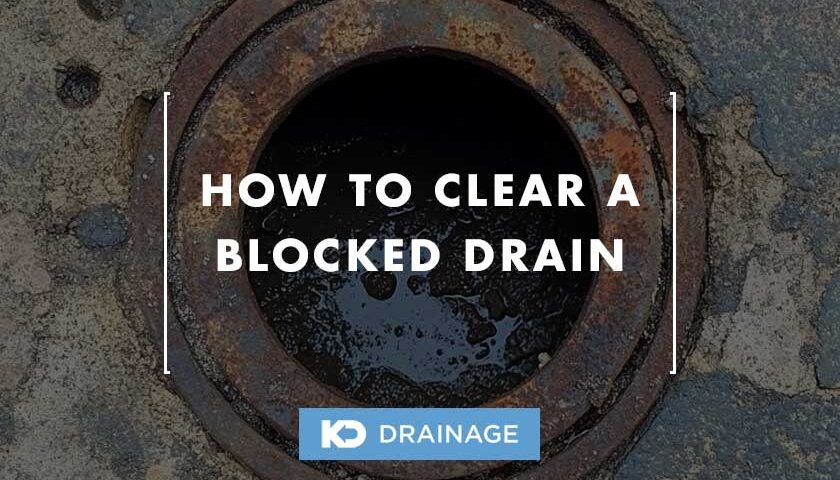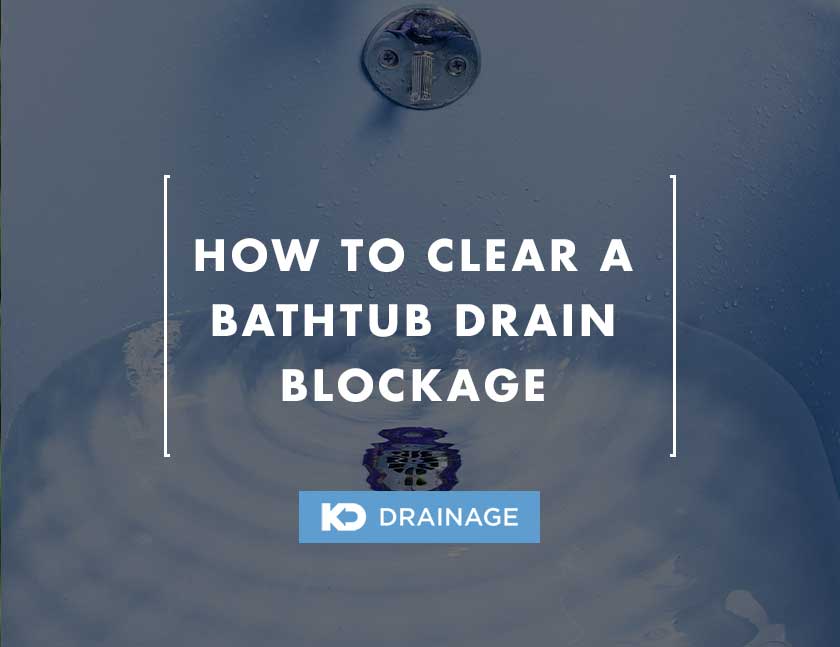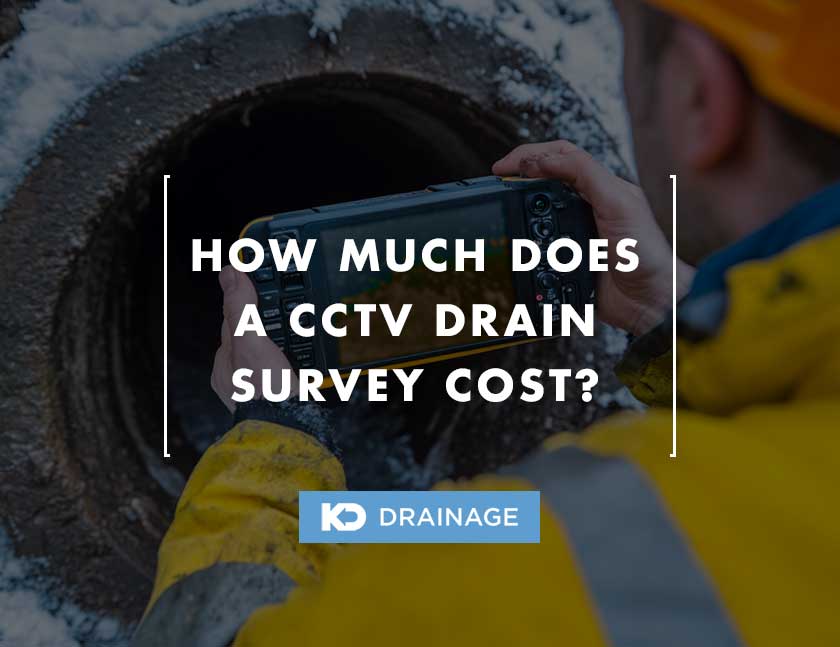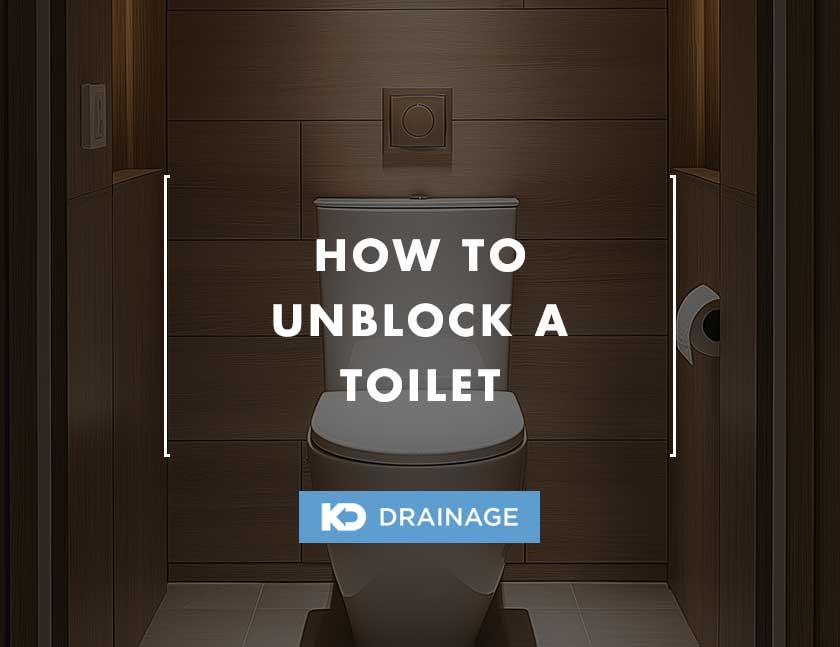
How to Get Rid of Rats in Drains
1 October 2024
What is a Septic Tank and How Does It Work?
1 December 2024How to Clear a Blocked Drain
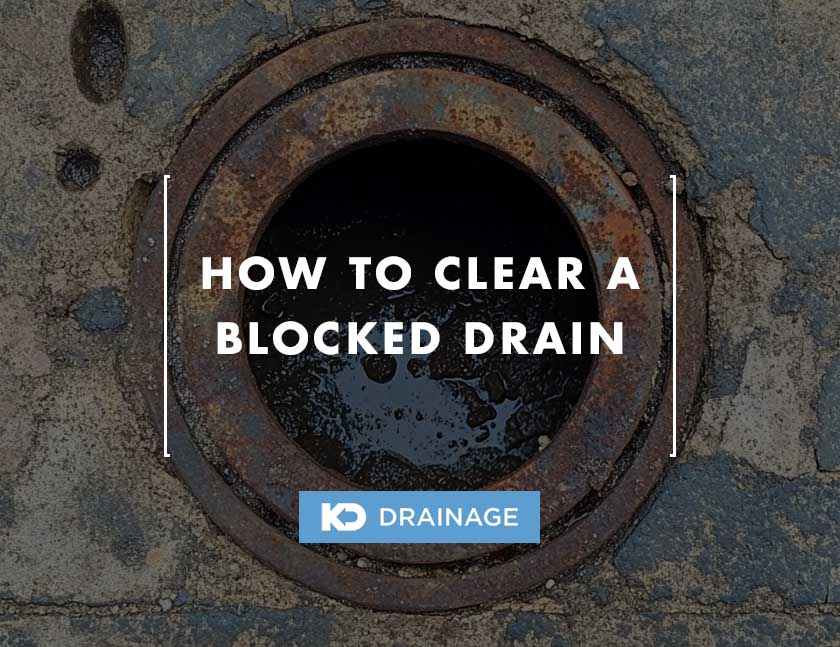
Blocked drains are a common household problem.
They can be annoying, causing slow water drainage, unpleasant smells, and even flooding.
Fortunately, you can often clear a blocked drain yourself using simple methods.
But exactly how do you clear a blocked drain?
This article will explain why drains get blocked, how to identify a blockage, and six effective ways to clear a blocked drain.
Whether you’re dealing with a minor clog or a more serious blockage, this article will help you get your drains flowing freely again.
Table of Contents
Why do Drains Get Blocked?
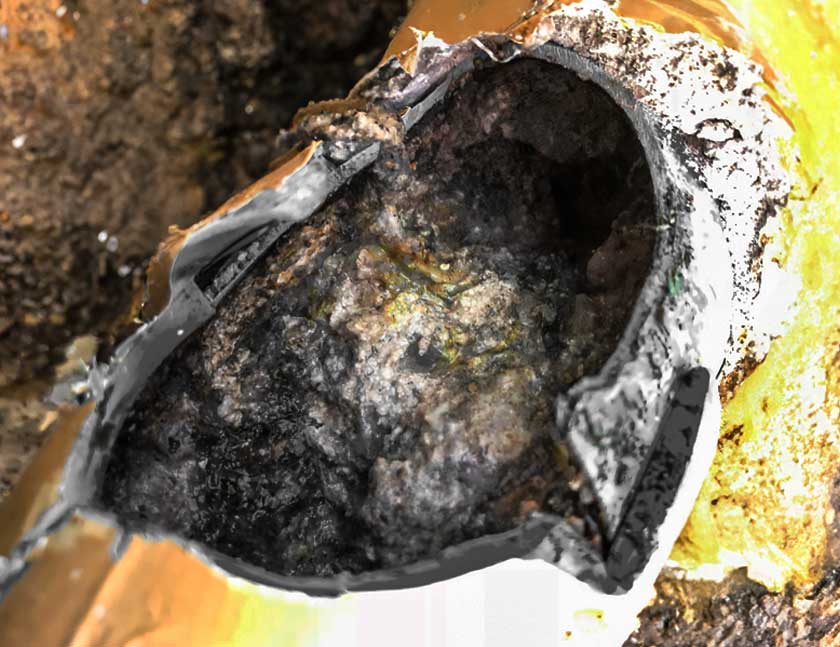
Drains can get blocked for several reasons, with some causes having more issues than others.
Some of the most common causes are:
Debris
One of the most common reasons drains get blocked is the gradual buildup of debris.
Over time, everyday items such as hair, soap scum, food particles, grease, and dirt accumulate in the pipes.
These materials can stick together, forming a clog that eventually blocks the drain.
This is especially common in bathroom sinks and showers, where hair and soap are regularly washed down.
Improper Disposal
Drains are not designed to handle certain items.
Flushing or washing down things like sanitary products, wet wipes, cooking grease, and large food scraps can easily cause blockages.
These items don’t break down easily and can get lodged in the pipes, creating a stubborn clog.
Damaged or Old Pipes
As pipes age, they can become more susceptible to damage.
Cracks, corrosion, and general wear and tear can lead to blockages.
Collapsed pipes, in particular, can completely obstruct the flow of water, leading to serious drainage problems.
Grease and Fat Build-Up
In kitchens, grease and fat from cooking can easily cause blockages.
As these substances cool, they solidify and stick to the inside of pipes.
Over time, this buildup narrows the pipe, eventually leading to a blockage.
What Issues Can a Blocked Drain Cause?
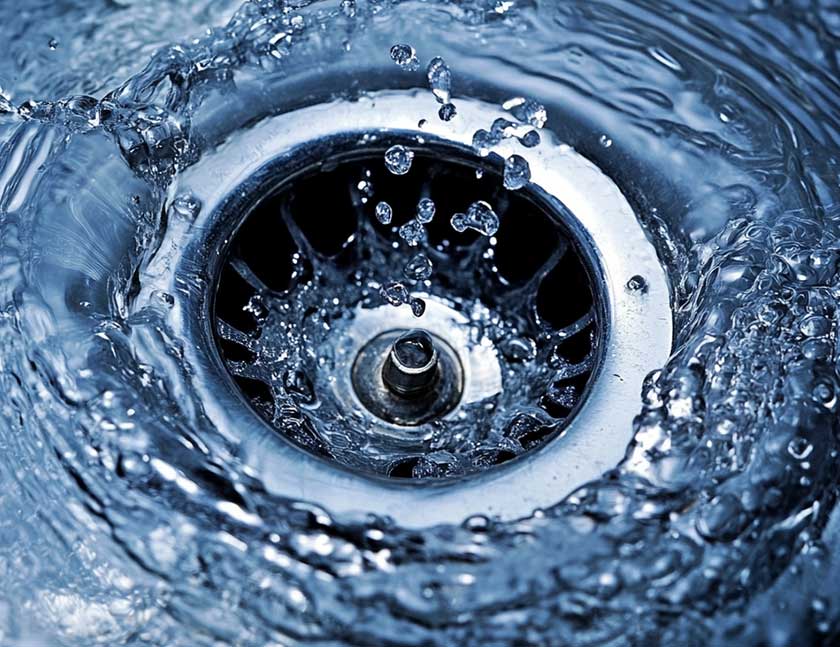
Blocked drains can cause numerous issues, with some of the main ones being:
Water Damage
A blocked drain can lead to water backing up and overflowing, causing significant water damage to your home.
This can affect floors, walls, and furniture, leading to costly repairs.
In severe cases, persistent water exposure can weaken the structural integrity of your home.
Bad Smells
When a drain is blocked, trapped water and debris can start to decompose, producing unpleasant smells.
These bad smells can spread throughout your home, making living conditions uncomfortable and potentially affecting indoor air quality.
Health Hazards
Blocked drains can create an environment for bacteria and mould to grow.
This can pose serious health risks, particularly for those with allergies or respiratory conditions.
The stagnant water can also attract pests like insects, further compromising your home’s hygiene.
Slow Drainage
A blocked drain causes slow drainage in sinks, showers, and toilets.
This can make daily activities more difficult and frustrating.
If left untreated, it can lead to complete blockage, making it impossible to use certain plumbing fixtures.
Structural Damage
In severe cases, blocked drains can cause cracks in your pipes due to the pressure buildup.
This can result in leaks, which may cause structural damage to your home’s foundation over time, leading to expensive repairs and potential safety hazards.
How to Identify a Blocked Drain

Before you can clear a blocked drain, you need to identify it. Here are some signs that your drain might be blocked:
Slow Draining Water
One of the first signs of a blocked drain is water that drains slowly.
This can happen in sinks, showers, bathtubs, or toilets.
When a drain is partially blocked, water takes longer to flow away because the pathway is obstructed.
If you notice that it takes longer than usual for water to drain, this could be an early indication of a blockage.
Unpleasant Smells
Blocked drains often emit unpleasant odours.
As debris like food particles, hair, and grease accumulate in the pipes, they begin to decompose, creating a foul smell.
If you notice bad smells coming from your sink, shower, or drain outlets, it’s a clear sign that something is stuck in the pipes and is beginning to rot.
Gurgling Sounds
A blocked drain can also cause strange noises, like a sink gurgling or bubbling, especially when water is draining.
These sounds occur because air is trapped in the pipes, struggling to escape past the blockage.
As water flows, it pushes this trapped air through the small gaps, creating a gurgling sound. If you hear this noise, it’s likely that your drain is partially blocked.
Water Backing Up
One of the more serious signs of a blocked drain is water backing up into the sink, tub, or toilet.
This happens when the blockage is severe, preventing water from flowing through the pipes.
Instead of draining away, the water has nowhere to go and comes back up through the drain.
This is a clear indication of a significant blockage that needs immediate attention.
Multiple Blocked Drains
If you have more than one drain that’s blocked or slow-draining, the problem may be in your home’s main sewer line.
This can cause widespread drainage issues and may require professional help to resolve.
Multiple blocked drains are a serious issue and should not be ignored.
6 Ways to Clear a Blocked Drain
Clearing a blocked drain doesn’t have to be overly complicated.
Here are six methods to clear a blocked drain.
Boiling Water
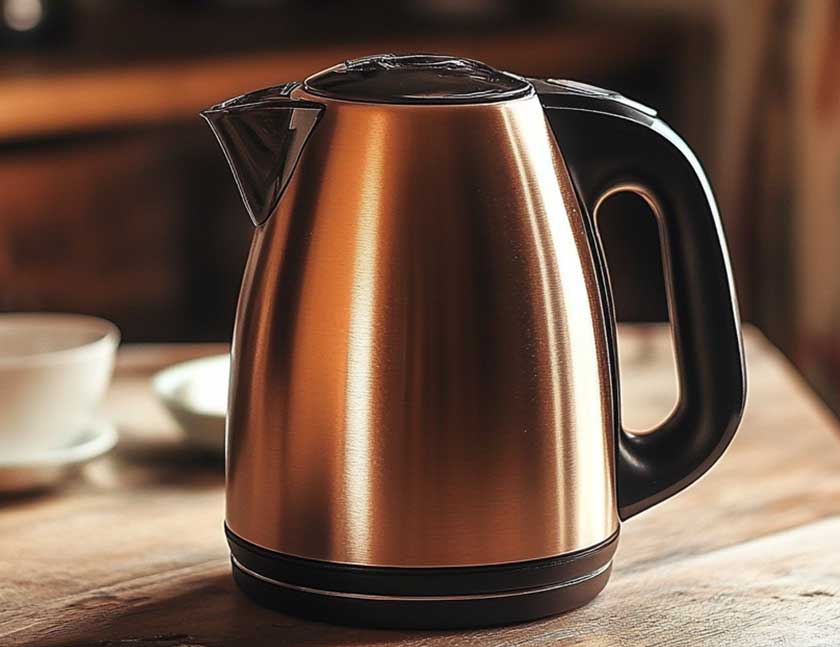
Boiling water is one of the simplest and most straightforward methods to clear a blocked drain.
The idea is to pour boiling water directly into the drain to dissolve or loosen the blockage.
This method is particularly effective against clogs caused by soap scum, grease, and small food particles.
Boiling water is hot enough to melt and dissolve grease and soap deposits, which are common causes of blockages in kitchen sinks.
The heat also helps to break down any other minor debris, allowing it to flow more freely through the pipes.
Benefits
- Boiling water is a quick and easy solution that requires no special tools or chemicals.
- All you need is a kettle and water, making it one of the most economical options.
- This method doesn’t involve any harsh chemicals, making it safe for your pipes and the environment.
Bicarbonate of Soda
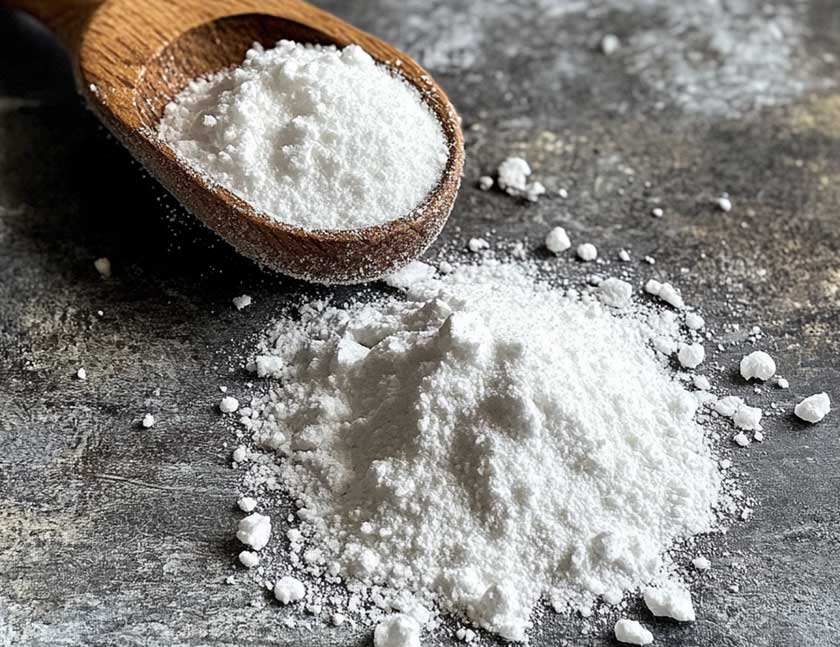
Bicarbonate of soda, or baking soda, is a versatile household item that can be used to clear blocked drains.
When combined with vinegar, it creates a chemical reaction that helps to break down clogs.
The mixture is poured into the drain, left to sit for a while, and then flushed out with boiling water.
The reaction between bicarbonate of soda and vinegar produces carbon dioxide bubbles, which can loosen and dislodge debris stuck in the pipes.
This method is particularly effective for organic blockages, such as those caused by food particles, hair, and soap scum.
Benefits
- This method uses common, non-toxic ingredients, making it safe for both your pipes and the environment.
- It’s especially good at breaking down organic materials, which are common in kitchen and bathroom drains.
- Regular use of bicarbonate of soda and vinegar can help prevent future blockages.
Purpose-Made Cleaners
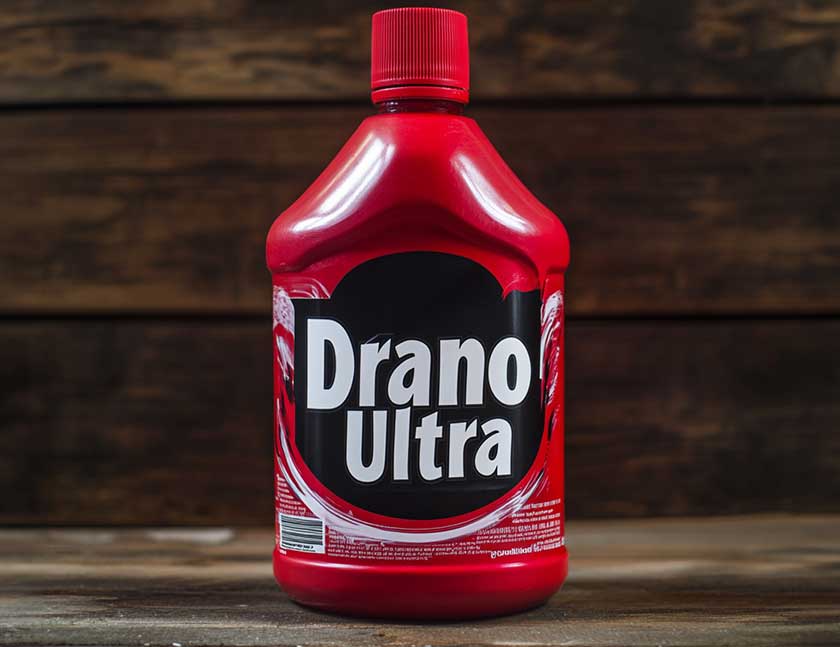
Purpose-made chemical drain cleaners are designed to tackle tough blockages by dissolving the material causing the clog.
These cleaners are available in liquid, gel, or powder form and are usually poured directly into the blocked drain.
After allowing the cleaner to sit for a specified period, the drain is flushed with water.
Chemical drain cleaners contain powerful ingredients like sodium hydroxide or sulfuric acid, which break down clogs by dissolving grease, hair, soap scum, and other common blockage materials.
They are especially effective for stubborn clogs that cannot be cleared with simpler methods.
Benefits
- These cleaners are designed to work quickly and can dissolve even the most stubborn blockages.
- They are widely available in supermarkets and hardware stores.
- Chemical cleaners can tackle a wide range of blockages, making them a versatile option.
Plunger
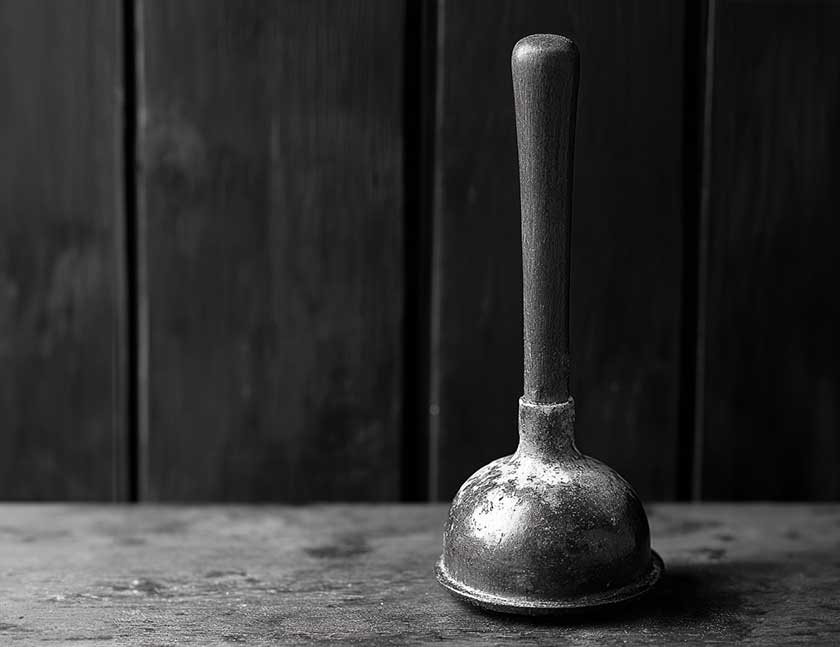
A plunger is a manual tool that uses suction and pressure to dislodge clogs from drains.
To use a plunger, you place the rubber cup over the drain, create a seal, and then push and pull the handle to create suction.
The pressure difference helps to move the blockage, allowing water to flow freely.
A plunger works by creating a vacuum that forces air and water against the blockage.
This pressure can dislodge and move the clog through the pipes, clearing the drain.
Benefits
- A plunger is a one-time purchase that can be used repeatedly for different drains in your home.
- This method doesn’t require any harsh chemicals, making it safe for your pipes.
- Plungers are particularly effective for clogs near the drain opening, such as those in sinks, showers, and toilets.
Drain Snake
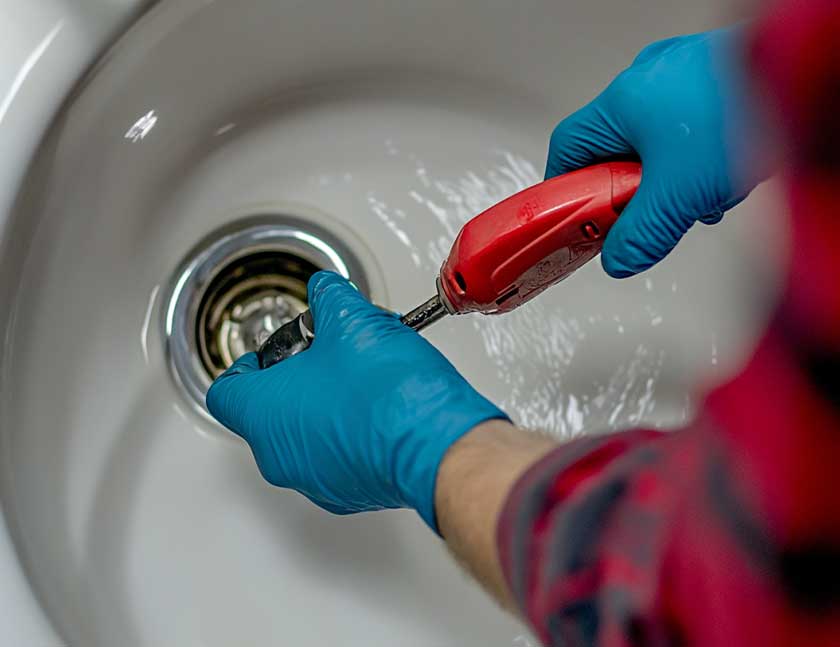
A drain snake, also known as a plumber’s auger, is a long, flexible tool used to clear blockages deep within the pipes.
To use a drain snake, insert it into the drain and push through until it reaches the clog.
Once in place, the snake is twisted to break up the blockage or pull it out.
The drain snake is effective because it can reach deep into the pipes, far beyond the reach of other methods.
It can physically break up the clog or snag it, allowing you to remove the blockage entirely.
Benefits
- Drain snakes can reach clogs that are deep within the plumbing system, where other tools and methods can’t.
- The snake gives you direct control over the unclogging process, making it possible to tackle even stubborn blockages.
- A drain snake can be used on a variety of drains, including sinks, bathtubs, and toilets.
Call a Professional

When all else fails, or if the blockage is particularly severe, calling a professional plumber, such as us here at KD Drainage, is the best course of action.
Plumbers have the expertise, tools, and experience to deal with complex blockages and plumbing issues.
Professionals can diagnose the problem accurately and use specialised equipment, such as motorised drain snakes, hydro-jetting, and CCTV drain surveys, to clear the blockage.
They can also identify and fix any underlying issues that may be contributing to the problem.
Benefits
- Professional plumbers have the knowledge to handle even the most difficult blockages.
- They can manage potentially dangerous situations, such as sewage backups or damaged pipes.
- Professionals can provide permanent fixes and advice on preventing future blockages.
Conclusion
You should now have the knowledge to be able to clear a blocked drain effectively.
Blocked drains are an inconvenient but common problem. Fortunately, you can often clear them yourself using simple methods.
By understanding why drains get blocked and how to identify a blockage, you can act quickly and prevent bigger issues.
Whether it’s using boiling water, a plunger, or a drain snake, there’s a method that can work for you.
However, if the blockage persists, don’t hesitate to call a professional.
They can provide a safe, effective, and long-lasting solution to keep your drains flowing freely.
For any and all questions about your drainage needs, get in contact with us here at KD Drainage.

